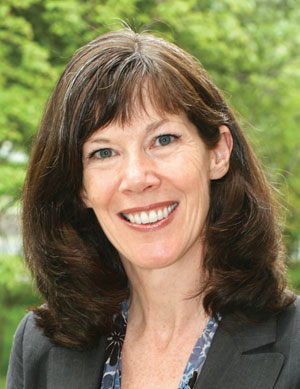As Ontario’s economy continues to drag along in the midst of a global recession, law firms admit it’s more difficult to make new hires, but say the downturn has not led to the type of catastrophic measures taken by many big U.S. firms that might give the current crop of law students pause.

Norman Letalik, a partner and managing director of professional excellence at Borden Ladner Gervais LLP, says his firm has made “no fundamental shift” in their approach to student hiring in the midst of the recession.
But while the firm’s articling student hire-back rate has remained steady or increased in Vancouver, Calgary, and Ottawa, only 10 of 20 Toronto articling students have been kept on as associates.
Letalik said the Toronto numbers suggest the level of caution being taken by the firm, with many waiting “for the other shoe to drop” in this recession.
But he says that if the economy continues at the same pace it is currently at, the firm likely will go back and make offers to the articling students who were initially passed over. That’s what happened in the 1990s when the economy turned for the better, he says.
Letalik says BLG has not considered making deferred offers to new hires, an approach used by Skadden Arps Slate Meagher & Flom LLP in the U.S. in which associates are paid a partial salary to not come into work. There are unconfirmed reports of big Toronto firms using a similar approach to retain talent while getting through the current slow patch.
On the bright side for Toronto firms, Letalik says he expects the bloodletting by U.S. firms to provide an excellent opportunity for Bay Street to hire on high quality students who otherwise would have been lured south of the border.
Gowling Lafleur Henderson LLP chairman and chief executive officer Scott Jolliffe says hire-backs are down at his firm, but he didn’t have exact numbers available. He admits the economic situation has given the firm pause.
“We’re very concerned about not making commitments in terms of hire-backs that we may not be able to fulfil, in terms of providing a full and robust career for the students as they graduate into lawyers,” he says.
He adds that hire-backs in the areas of business and commercial law are down, while intellectual property and litigation hire-backs “are pretty steady.” Jolliffe says the firm has focused on keeping its existing associates employed and busy with meaningful work.
“To the extent that we find that if we over-hire in terms of students, it may take away from the work available to our existing associates,” he says.
Jolliffe says Gowlings has not considered deferred hire-backs. He says he recently spoke with a managing partner from Skadden Arps, who noted the policy didn’t turn out as the firm had hoped.
“She was saying that that’s had some positive and some very negative effects. What’s happened is that they’ve had to lay off a number of people, particularly their staff, and to be offering paid vacations and whatnot to associates is not going very well for them,” says Jolliffe.
“These things have pluses and minuses. That certainly gained a lot of press, but at the end of the day it kind of backfired on them.”
Jolliffe says Gowlings is trying to keep its associates “busy and engaged” by asking them to take on up to 25 hours of pro bono work for clients.
Meanwhile, University of Toronto Faculty of Law Dean Mayo Moran says students at the school have been “barely affected” in terms of articling and summer positions.
“Virtually 100 per cent” of the faculty’s students again this year have landed spots, she says. However, she says she is keeping her eye on hire-backs, with reports suggesting firms being more conservative in their approach.
While the school’s JD students are in a good position, Moran says she has concerns about the hiring prospects of graduate students, who will be seeking employment in the academic job market.
“I actually think the academic job market has seized up much more than the other job market for lawyers, because the thing is that lawyers are in demand, whether it’s restructuring or mergers,” she says.
Moran herself had to hold off on the hiring process of two new law professors due to funding restrictions caused by the recession. Hiring the professors would have meant carrying a deficit, something the school isn’t in a position to do, says Moran.
She says she knows of some students from her faculty who received deferrals from New York law firms they had articled with, but says she’s not aware of any Toronto firms making such offers.
“They were quite happy, because they’re going to do public interest internships for a year,” she says. “And they’re getting a pretty substantial salary for doing that, and many of them are looking at ways to do that and also qualify for the Ontario bar, and then they’ll go back to the New York bar.”

 Norman Letalik, a partner and managing director of professional excellence at Borden Ladner Gervais LLP, says his firm has made “no fundamental shift” in their approach to student hiring in the midst of the recession.
Norman Letalik, a partner and managing director of professional excellence at Borden Ladner Gervais LLP, says his firm has made “no fundamental shift” in their approach to student hiring in the midst of the recession.